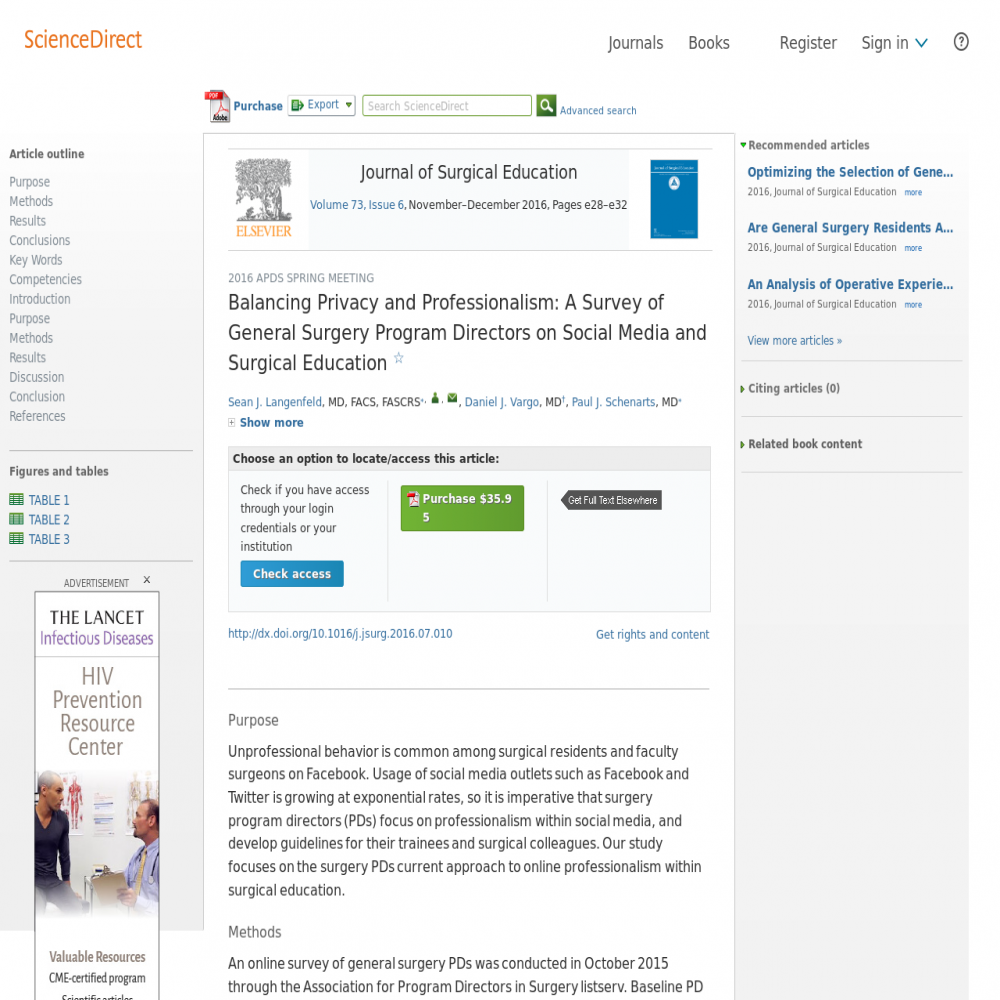Balancing Privacy and Professionalism: A Survey of General Surgery Program Directors on Social Media and Surgical Education
A healthcare social media research article published in Journal of Surgical Education, August 11, 2016
- Title
- Balancing Privacy and Professionalism: A Survey of General Surgery Program Directors on Social Media and Surgical Education
- Authors (alpha)
- Daniel J. Vargo, Paul J. Schenarts, Sean J. Langenfeld
- Published
- August 11, 2016
- Journal
- Journal of Surgical Education
- Impact Factor
- 1.95
- DOI
- 10.1016/j.jsurg.2016.07.010
- Pubmed
- 27524278
- Altmetric
Abstract
Unprofessional behavior is common among surgical residents and faculty surgeons on Facebook. Usage of social media outlets such as Facebook and Twitter is growing at exponential rates, so it is imperative that surgery program directors (PDs) focus on professionalism within social media, and develop guidelines for their trainees and surgical colleagues. Our study focuses on the surgery PDs current approach to online professionalism within surgical education. An online survey of general surgery PDs was conducted in October 2015 through the Association for Program Directors in Surgery listserv. Baseline PD demographics, usage and approach to popular social media outlets, existing institutional policies, and formal curricula were assessed. A total of 110 PDs responded to the survey (110/259, 42.5% response rate). Social media usage was high among PDs (Facebook 68% and Twitter 40%). PDs frequently viewed the social media profiles of students, residents, and faculty. Overall, 11% of PDs reported lowering the rank or completely removing a residency applicant from the rank order list because of online behavior, and 10% reported formal disciplinary action against a surgical resident because of online behavior. Overall, 68% of respondents agreed that online professionalism is important, and that residents should receive instruction on the safe use of social media. However, most programs did not have formal didactics or known institutional policies in place. Use of social media is high among PDs, and they often view the online behavior of residency applicants, surgical residents, and faculty surgeons. Within surgical education, there needs to be an increased focus on institutional policies and standardized curricula to help educate physicians on social media and online professionalism.
Altmetric
The Altmetric Attention Score is based on the attention a research article gets on the internet. Each coloured thread in the circle represents a different type of online attention and the number in the centre is the Altmetric Attention Score. The score is calculated based on two main sources of online attention: social media and mainstream news media.
Healthcare Social Media Research
See the full list of healthcare social media research articles with data from or reference to Symplur.
#hcsmR is a collaboration between Stanford Medicine X and Symplur.


